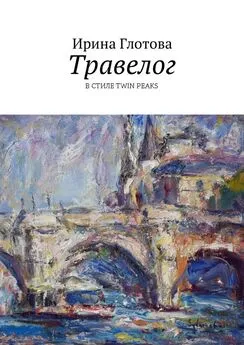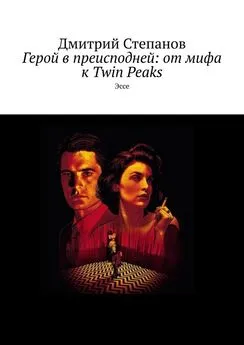Peake, Mervyn - 02 Gormenghast
- Название:02 Gormenghast
- Автор:
- Жанр:
- Издательство:неизвестно
- Год:неизвестен
- ISBN:нет данных
- Рейтинг:
- Избранное:Добавить в избранное
-
Отзывы:
-
Ваша оценка:
Peake, Mervyn - 02 Gormenghast краткое содержание
02 Gormenghast - читать онлайн бесплатно полную версию (весь текст целиком)
Интервал:
Закладка:
The feverish months of hauling up the stairways of Gormenghast all that was now congesting the upper storeys would be nothing to this regenerative labour that lay before the hierophants.
The fact that at some remote date the castle was likely to be cleaner than it had been for a millennium held little attraction for those who had never thought of the place in terms of cleanliness - had never imagined it could be anything but what it was.
That the flood had once threatened their very existence was forgotten. It was the labour that lay ahead that was appalling. And yet, the calm that had settled over Gormenghast had soothed away the rawness. Time lay ahead - soft and immeasurable. The work would be endless but it would not be frantic. The flood was descending. It had caused havoc, ruin, death, but it was descending. It was leaving behind it rooms full of mud and a thousand miscellaneous objects, sogged and broken; but it was descending.
Steerpike was dead. The fear of his whistling pebbles was no more. The multitudes moved without fear across the flat roofs, they appeared above the surface, a hundred battling at a time. The kitchen boys and the urchins of the castle dived from the windows and sported across the water, climbing the outcrops as to gain some island tower - new-risen from the blue.
Titus had become a legend; a living symbol of revenge. The long scar across his face was the envy of the castle's youth, the pride of his mother - and his own secret glory.
The doctor had kept him in his bed for a month. His fever had mounted dangerously. For a week of high delirium the doctor fought for his life and hardly left his bedside. His mother sat in a corner of the room, motionless as a mountain. When at last he became conscious of what was happening around him and his forehead was cool again his mother withdrew. She had no idea what to say to him.
The descent of the waters continued at its own unhurried pace. The roof tops had become the castle's habitat. The long flat summit of the western massives had now, after three centuries of neglect become a favourite promenade. There, the crowds would wander after sundown when their work was over, or lean upon the turrets to watch the sun sink over the flood. The roofs had come into their own. There, throughout the day, the traditional life of the place was, as far as possible, continued. The great Tomes of Procedure had been saved from the wreckage, and the Poet, now Master of Ceremonies, was ceaselessly at work. Extensive areas had been covered with shanties and huts of every description. The various strata of Gormenghast had been gradually drawn to such quarters as best suited their rank and occupation.
More and more of Gormenghast Mountain became visible. The high and jagged cone grew bigger every day. At sunrise with the thin beam slanting across it and lighting the trees and rocks and ferns, it was an island mad with birdsong. Noon brought the silence: the sun slid gently over the blue sky and was reflected in the water.
It was as though all that had happened over the last decade, all the violence, the intrigue, the passion, the love, the hate and the fear had need of rest and that now, with Steerpike dead, the castle was able at last to close its eyes for a while and enjoy the listlessness of convalescence.
Day after day, night after night, this strange tranquillity swam through the realm. But it was the spirit that rested; not the body. There was no end to the coming and going, to the sheer manual labour and to all the innumerable activities that hinged upon the re-conditioning of the castle.
The tops of trees had begun to appear with all but their strongest branches broken. Fresh shapes of masonry lifted their heads above the surface. Expeditions were made to Gormenghast Mountain from whose slopes the castle could be seen to be recovering its familiar shape.
There, on the rocky slopes, not more than three hundred feet from the claw-like summit, Fuchsia had been buried on the day following Steerpike's death.
She had been rowed by six men across the motionless flood in the most magnificent of the Carvers' boats, a massive construction, with a sculptured prow.
The traditional catacomb of the Groan family, with its effigies of local stone had been fathoms under water and there had been no alternative but to bury the daughter of the Line, with all pomp, in the only earth available.
The Doctor, who had not dared to leave the young earl in his illness, had been unable to attend the ceremony.
The grave had been hacked out of the stony earth upon a sloping site, chosen by the Countess. She had battled her way to and fro across the dangerous ground in search of a place worthy to be her daughter's resting place.
From this location the castle could be seen heaving across the skyline like the sheer sea-wall of a continent; a seaboard nibbled with countless coves and bitten deep with shadowy embayments. A continent, off whose shores the crowding islands lay; islands of every shape that towers can be; and archipelagos; and isthmuses and bluffs; and stark peninsulas of wandering stone - an inexhaustible panorama whose every detail was mirrored in the breathless flood below.
By the time that Titus had to a great extent recovered not only from the horror of the night, but from the effects of the nervous exhaustion that followed, a year had passed and Gormenghast was once again visible from top to bottom.
But it was dank and foul. It was no place to live in. After dark there was illness in every breath. Animals had been drowned in its corridors; a thousand things had decayed. The place was noxious. Only by day the swarms of the workmen, toiling indefatigably, kept the place inhabited.
The roofs had by now been deserted, and a gigantic encampment was spread abroad across the grounds and escarpments that surrounded the castle; a kind of shanty town had arisen, where huts, cabins, shacks and improvised constructions of great ingenuity made from mud, branches, strips of canvas, and all kinds of odd pieces of iron and stone from the castle, shouldered one another in a fantastic conglomeration.
And there, while the work proceeded, ever towards one end, that pan of Gormenghast that was made of flesh and blood lived cheek by jowl.
The weather was almost monotonously beautiful. The winter was mild. A little rain came every few weeks, in the spring corn was grown on the higher and less water-logged slopes. Above the encircling encampments the great masonry wasted.
But while the 'drying out' of its myriad compartments and interstices proceeded and while this sense of peace lay over the scene, Titus, in contradiction to the prevailing atmosphere, grew, as his recovery became more complete, more and more restless.
What did he want with all this softness of gold light? This sense of peace?
Why was he waking every day to the monotony of the eternal encampment; the eternal castle and the eternal ritual?
For the Poet was taking his work to heart. His high order of intelligence which had up till now been concentrated upon the creation of dazzling, if incomprehensible, structures of verbiage, was now able to deploy itself in a way which, if almost as incomprehensible, was at the same time of more value to the castle. The Poetry of Ritual had gripped him and his long wedge-shaped face was never without a speculative twist of the muscles - as though he were for ever turning over some fresh and absorbing variant of the problem of Ceremony and the human element.
This was as it should be. The Master of Ritual was, after all, the keystone of the castle's life. But as the months passed Titus realized that he must choose between being a symbol, for ever toeing the immemorial line, or turn traitor in his mother's eyes and in the eyes of the castle. His days were full of meaningless ceremonies whose sacredness appeared to be in inverse ratio to their comprehensibility or usefulness.
And all the time he was the apple of the castle's eye. He could do no wrong - and there was honey to be tasted on the tongue, when the hierophants drew back from the rocky paths to let him pass and the children screamed his name excitedly from their shacks, or stared in big-eyed wonder at the avenger.
Steerpike had become an almost legendary monster - but here, alive and breathing, was the young earl who had fought him in the ivy. Here was the dragon-slayer.
But even this became monotonous. The honey tasted sickly in his mouth.
His mother had nothing to say to him. She had become even more withdrawn. Her pride in the courage he had shown had emptied her of words. She had reverted to the heavy and formidable figure, with her white cats for ever within range of her whistle and the wild birds upon her massive shoulders.
She had risen to an occasion. The uprooting of Steerpike and the salvaging of the flooded castle.
Now she drew back into herself.
Her brain began to go to sleep again. She had lost interest in it and the things that it could do. It had been brought forth like a machine from the darkness and set in motion - and it had proved itself to be measured and powerful, like the progress of an army on the march. But it now chose to halt. It chose to sleep again. Her white cats and her wild birds had taken the place of the abstract values. She no longer reasoned. She no longer believed that Titus had meant what he had said. She connected it with his delirium. It was impossible to believe that he could have known that his words were heresy. He had craved for a kind of freedom disconnected from the life of his ancient home - his heritage - his birthright. What could that mean? She relapsed into a state of self-imposed darkness, lit only by green eyes and the bright backs of birds.
But Titus could no longer bear to think of the life that lay ahead of him with its dead repetitions, its moribund ceremonies. With every day that passed he grew more restless. He was like something caged. Some animal that longs to test itself; to try its own strength.
For Titus had discovered himself. The 'Thing', when she had died in the storm had killed his boyhood. The death of Flay had seasoned him. The drowning of Fuchsia had left a crater beneath his ribs. His victory over Steerpike had given him a kind of touchstone to his own courage.
The world that he pictured beyond the secret skyline - the world of nowhere and everywhere was necessarily based upon Gormenghast. But he knew that there would be a difference; and that there could be no other place exactly like his home. It was this difference that he longed for. There would be other rivers; and other mountains; other forests and other skies.
He was hungry for all this. He was hungry to test himself. To travel, not as an Earl but as a stranger with no more shelter than his naked name.
And he would be free. Free of his loyalties. Free of his home. Free of the maddening forms and ceremonies. Free to become something more than the last of the great Line. His longing to escape had been fanned by his passion for the 'Thing'. Without her he would have never dared to do more than dream of insurrection. She had shown him by her independence how it was only fear that held people together. The fear of being alone and the fear of being different. Her unearthly arrogance and self-sufficiency had exploded at the very centre of his conventions. From the moment when he knew for certain that she was no figment of his fancy, but a creature of Gormenghast Forest, he had been haunted. He was still haunted. Haunted by the thought of this other kind of world which was able to exist without Gormenghast.
One evening, in the late spring, he climbed the slopes of Gormenghast Mountain and stood by his sister's grave. But he did not remain there for long, gazing down at the small silent mound. He could only think what all men would have thought; that it was pitiful that one so vivid and full of love and breath should be rotting in darkness. To brood upon it would only be to call up horrors.
Читать дальшеИнтервал:
Закладка:



